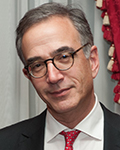2005, 2018
Paul A. Friedland
- Professor
- Cornell University

Abstract
Before the eighteenth century, the ritualized spectacle of public corporal punishment had remained virtually unchanged for generations. This study explores three essential questions: 1) Why did thousands of spectators willingly spend several hours watching condemned criminals be put to death? 2) Why did certain segments of the population suddenly regard these penal spectacles as "barbarous" in the eighteenth century? 3) What precisely was at stake—what was lost and what was gained—when spectacular bodily justice was replaced by more or less unspectacular penal servitude at the end of the eighteenth century? This project is both a social history of executioners and a cultural analysis of the theory and practice of executions over the course of several centuries.
Abstract
This project explores a revolution that swept through the Windward Islands of the Caribbean in the 1790s, spreading the ideal of a universal republic that would respect the rights of all. After defeating the British on several islands, the revolutionaries endeavored to create a world without race: the terms black and white were banned from official discourse and decrees were addressed to “Citizens, whatever color they may happen to be.” By the time the British managed to restore race-based slavery, 100,000 people had died. Until now, this revolution has been largely absent from the historical record, revealing the extent to which modern historiography, preoccupied with race, has had difficulty conceptualizing (or even seeing) the ideal of racelessness.

